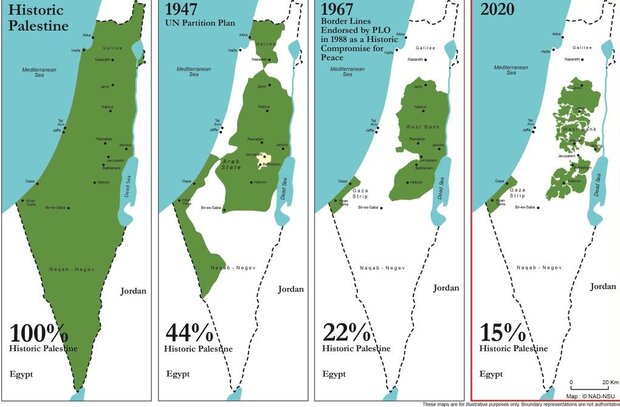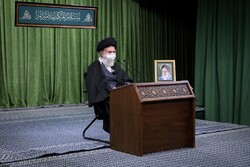

Quds Day: Reminder of Palestinian struggle
To mark the occasion amid the novel coronavirus pandemic the International Quds Day Conference was held online May 18 and 19.
This year’s Quds Day has special significance in the denunciation of the so-called “Deal of the Century” and proposed annexation of Jordan Valley and occupied West Bank, a display of shocking disregard for international law. The deal has given green light to Israeli sovereignty on the illegal settlements built since the 1967 war, which is now colonized by more than 600,000 Israeli Jews.
Protests in the region on May 15 marked the 72nd anniversary of the Nakba or “catastrophe”, when hundreds of thousands of Palestinians were forced into exile following creation of the Zionist state in 1948. It was another opportunity to denounce the policies of U.S. President D. Trump’s ultra-right policies and alliance with Israel.
While successive U.S. presidents and administrations have supported Israel, none has done as much in such a short time to embolden its right-wing settler-led colonialist government than Trump whose administration recognized Jerusalem as Israel’s capital in 2017, stalling the road map for a two-state solution.
Trump’s son-in-law Jared Kushner worked closely with former U.S. special envoy for the Middle East, Jason Greenblatt, to design the “Deal of the Century”. The plan was announced in January after several months of delay. What Palestinians saw as a “surrender note”, referred in one of the Tehran Times’ headlines as the “Highway to Hell” and what many consider “Heist of the Century”.
After three inconclusive elections in the Zionist state a three-year power-sharing agreement was announced in April which allows Netanyahu first bite at leading before handing power to Benny Gantz. At the heart of that agreement is the illegal annexation of large swathes of the West Bank, including the Jordan Valley and the Northern Dead Sea.
Israel is 21st century’s Middle East version of apartheid-era South Africa, the only remaining apartheid state where Palestinians remain, at best, second class citizens in Israel, under occupation in Gaza, East Jerusalem and West Bank.
Of historical significance is the plight of residents of Gaza Strip. In January 2006, Hamas won a sweeping majority in the Palestinian Legislative Council elections ending more than 40 years of domination by Fatah, the political faction built by the late Yasir Arafat.
Following the elections U.S., EU and Canada cut off funding to the Palestinian Authority despite Canada having helped to facilitate and monitor the elections. Worth mentioning is that the Israel-Hezbollah conflict ensued during the summer of 2006.
Gaza Strip was put under Israeli and Egyptian blockade in 2007 when the Hamas resistance movement started controlling the enclave. As a result of Israel’s stifling measures the UN has warned in the past that the Gaza Strip would become “uninhabitable” by 2020.
More than two million people cramped up in a 362 square kilometer area, deprived of their fundamental human rights including freedom of movement. Under strict air, sea and ground siege imposed by Israel and Egypt for the last thirteen years, Gaza Strip is considered the largest open-air prison in the world.
This prison verdict is backed by international community, mainly the Western powers and the U.S. During the siege the coastal enclave has undergone three major Israeli offensives.
Today around 6.5 million Palestinians live abroad as refugees or members of the diaspora.
Quds day is a reminder of the plight of Palestinian people.
